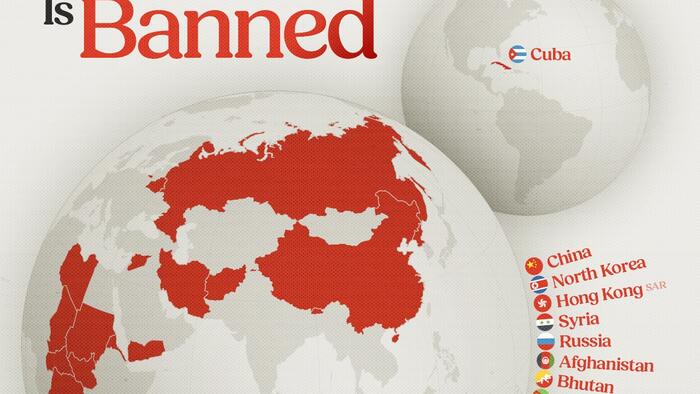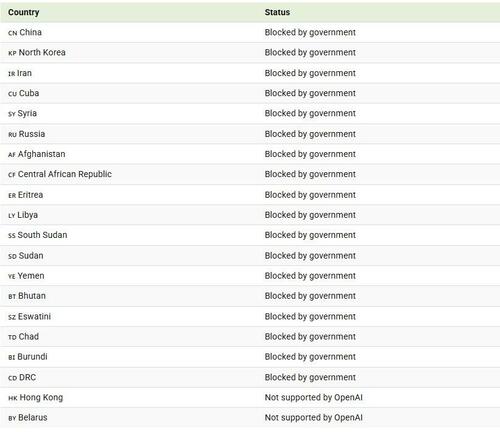


Governments around the world are taking different stances on artificial intelligence tools like ChatGPT.
While some embrace the technology, others have restricted or outright banned access due to political, cultural, or security concerns.
In 2025, ChatGPT remains unavailable in 20 countries.
In this visualization, Visual Capitalist's Marcus Lu highlights where ChatGPT is banned, as well as places where OpenAI does not offer service.
The data for this visualization comes from a list compiled by Cybernews, which we referenced with an official OpenAI list of supported countries.
Many of the bans are found in countries with strict internet control, such as China, North Korea, and Iran. These governments limit access to foreign digital platforms, often citing information control and political stability as reasons.
In China, for example, users have access to several LLMs that were developed by domestic companies, including Alibaba’s Qwen, DeepSeek, Baichuan, and Tencent-backed Hunyuan.
Meanwhile, in conflict zones like Syria, Afghanistan, and Yemen, bans are linked to both security concerns and limited infrastructure.
Not all countries on the list have active bans. In places like Hong Kong and Belarus, the service is unavailable because OpenAI does not support accounts there. These exclusions are often due to business, regulatory, or legal complexities rather than explicit censorship.
If you enjoyed today’s post, check out the AI “Big Bang” Study 2025 on Voronoi, the new app from Visual Capitalist.

